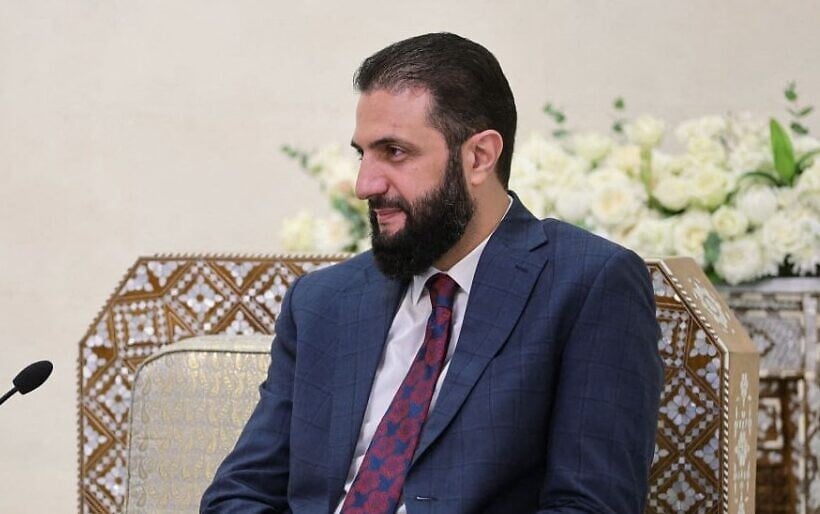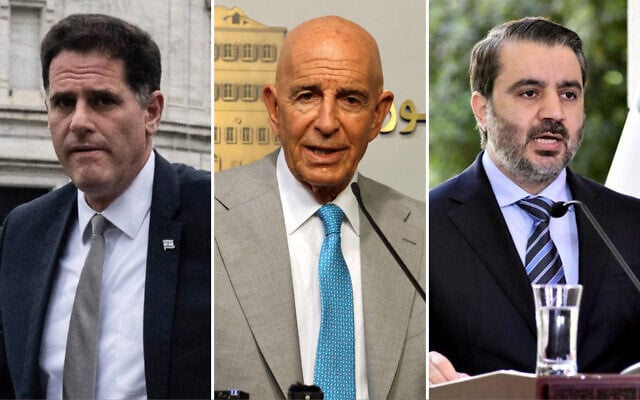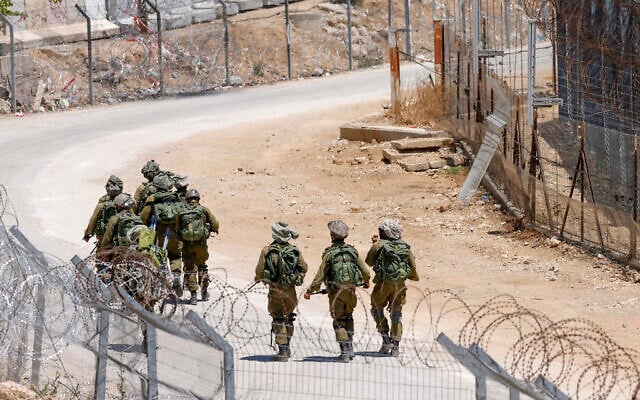DAMASCUS, Syria — Syrian President Ahmed al-Sharaa said on Wednesday that ongoing negotiations with Israel to reach a security pact could lead to results “in the coming days.”
He told reporters in Damascus the security pact was a “necessity” and that it would need to respect Syria’s airspace and territorial unity and be monitored by the United Nations.
Syria and Israel are in talks to reach an agreement that Damascus hopes will secure a halt to Israeli airstrikes and the withdrawal of Israeli troops who have pushed into southern Syria, with the sides holding a US-brokered meeting in London on Wednesday that the Axios news site said lasted five hours.
According to the report, Syrian Foreign Minister Asaad al-Shaibani presented Strategic Affairs Minister Ron Dermer with Syria’s response to an Israeli proposal for the security arrangement.
Reuters reported earlier this week that Washington was pressuring Syria to reach a deal before world leaders gather next week for the UN General Assembly in New York.
Get The Times of Israel’s Daily Edition
by email and never miss our top stories
By signing up, you agree to the terms
But Sharaa, in a briefing with journalists including Reuters ahead of his expected trip to New York to attend the meeting, denied the US was putting any pressure on Syria and said instead that it was playing a mediating role.
(L-R) Strategic Affairs Minister Ron Dermer, US special envoy to Syria Tom Barrack and Syrian Foreign Minister Asaad al-Shaibani. (Collage/AFP)
He said Israel had carried out more than 1,000 strikes on Syria and conducted more than 400 ground incursions since December 8, when the rebel offensive he led toppled former Syrian leader Bashar al-Assad.
Sharaa said Israel’s actions were contradicting the stated American policy of a stable and unified Syria, which he said was “very dangerous.”
He said Damascus was seeking a deal similar to a 1974 disengagement agreement between Israel and Syria that created a demilitarized zone between the two countries following the 1973 Yom Kippur War a year earlier.
He said Syria sought the withdrawal of Israeli troops but that Israel wanted to remain at strategic locations it seized after December 8, including the Syrian side of Mount Hermon. Israeli ministers have publicly said Israel intends to keep control of the sites.
Sharaa said if the security pact succeeds, other agreements could be reached. He did not provide details, but said a peace agreement or normalization deal like the US-mediated Abraham Accords, under which several Muslim-majority countries agreed to normalize diplomatic ties with Israel, was not currently on the table.
He also said it was too early to discuss the fate of the Golan Heights, much of which Israel captured from Syria in the 1967 Six Day War and latter extended sovereignty over, because it was “a big deal.”
Israeli troops patrol the border fence with Syria near the Druze village of Majdal Shams in the Golan Heights on July 23, 2025 (Jalaa MAREY / AFP)
Reuters reported this week that Israel had ruled out handing back the strategic plateau, which Donald Trump unilaterally recognized as Israeli during his first term as US president.
“It’s a difficult case — you have negotiations between a Damascene and a Jew,” Sharaa told reporters, smiling.
Security pact derailed in July
Sharaa also said Syria and Israel had been just “four to five days” away from reaching the basis of a security pact in July, but that developments in the southern province of Sweida had derailed those discussions.
A man waves an Israeli flag during a demonstration by Druze in the southern Syrian city of Sweida calling for self-determination, August 16, 2025. (X screenshot)
Syrian troops were deployed to Sweida in July to quell fighting between Druze armed factions and Bedouin fighters. But the violence worsened, with Syrian forces accused of execution-style killings and Israel striking southern Syria, the defense ministry in Damascus and near the presidential palace.
Sharaa on Wednesday described the strikes near the presidential palace as “not a message, but a declaration of war,” and said Syria had still refrained from responding militarily to preserve the negotiations.
Is The Times of Israel important to you?
If so, we have a request.
Every day, even during war, our journalists keep you abreast of the most important developments that merit your attention. Millions of people rely on ToI for fast, fair and free coverage of Israel and the Jewish world.
We care about Israel – and we know you do too. So today, we have an ask: show your appreciation for our work by joining The Times of Israel Community, an exclusive group for readers like you who appreciate and financially support our work.
Already a member? Sign in to stop seeing this
You appreciate our journalism

You clearly find our careful reporting valuable, in a time when facts are often distorted and news coverage often lacks context.
Your support is essential to continue our work. We want to continue delivering the professional journalism you value, even as the demands on our newsroom have grown dramatically since October 7.
So today, please consider joining our reader support group, The Times of Israel Community. For as little as $6 a month you’ll become our partners while enjoying The Times of Israel AD-FREE, as well as accessing exclusive content available only to Times of Israel Community members.
Thank you,
David Horovitz, Founding Editor of The Times of Israel




